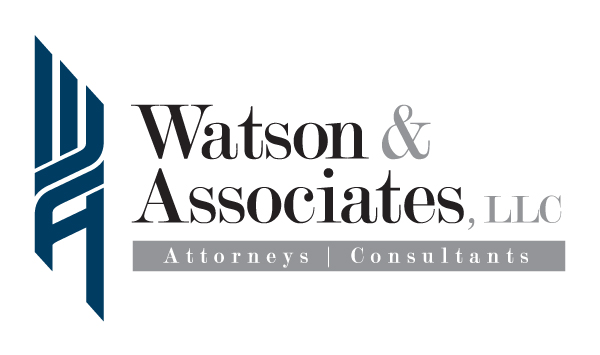FAR Part 15 Meaningful FAR Discussions Vs Clarifications in GAO Protest
GAO recently sustained a bid protest about meaningful FAR discussions in the Matter of: Marathon Medical Corporation because the agency failed to hold meaningful discussions under FAR Part 15 with the protestor.
protestor.
In that case, Marathon’s FAR protest alleged the Department of Veteran Affairs improperly held discussions with the awardee, but failed to hold discussions with Marathon.
Marathon alleged that the VA allowed Manus, the awardee, to provide its components for inspection after the closing date for proposals, which allowed Manus to become acceptable, but did not allow Marathon the same opportunity with respect to its past performance references.
In its defense, the VA responded that it did not hold meaningful discussions with Manus because it did not allow Manus to alter its proposal, and instead only requested clarification of its proposal.
The solicitation required that an offeror proposing an equal item “must furnish as part of his/her [offer] all descriptive material . . . necessary for the purchasing activity to: (i) Determine whether the product offered meets the salient characteristics requirement.”
GAO looked at the evaluation notice and found that the VA requested samples for all proposed equal items “[i]n order to verify if the proposed components are equal or equivalent.”
The VA subsequently explained that “[b]y viewing [the samples] they were able to make a firm determination that they were in fact ‘equivalent.’” Since visual inspection of the requested samples was necessary
FAR Part 15 Meaningful Discussions Vs Clarifications In Bid Protest Litigation
GAO in its decision quoted Federal Acquisition Regulation, FAR 15.306 which describes a range of exchanges that may take place between an agency and an offeror during negotiated procurements.
Discussions
Meaningful Discussions under FAR Part 15 occur when an agency indicates to an offeror that certain aspects of its proposal that could be altered or explained to materially enhance the proposal’s potential for award or to obtain information from the offeror that is necessary to determine the proposal’s acceptability. See FAR Part 15.306(d)(3).
The Court of Federal Claims has ruled that meaningful discussions are discussions that lead offerors into the areas of their proposals requiring amplification or correction. See Fort Carson Support Servs. v. United States, 71 Fed. Cl. 571, 611 (2006) (citing WorldTravelService v. United States, 49 Fed. Cl. 431, 439 (2001)).
The purpose of meaningful discussions is to “maximize the [g]overnment’s ability to obtain best value, based on the requirement and the evaluation factors set forth in the solicitation.” Furthermore, [c]ontracting officer[s] must . . . indicate to, or discuss with, each offeror still being considered for award, deficiencies, significant weaknesses, and adverse past performance information to which the offeror has not yet had an opportunity to respond.”
Clarifications
As compared to meaningful discussions, the FAR permits clarifications as “limited exchanges” to provide offerors “the opportunity to clarify certain aspects of proposals . . . or to resolve minor or clerical errors.” See 48 CFR 15.306(a)(1), (2). Read also the difference between meaningful discussions vs unequal discussions.
Application of FAR 15 Rule in Bid Protests
If you find yourself in a situation where the Agency is asking information and you don’t know whether it is a FAR 15 clarification or discussion, one approach is to simply ask if you can revise your proposal. If the answer is no, then you may probably be in the range of clarifications.
However, if the Agency is discussing material flaws in your technical proposal and any other aspect, then you should be allowed to revise your proposal. Obviously, from reviewing this FAR protest, government contracting agencies do make serious mistakes.
GAO has held that agencies must hold discussions with all offerors whose proposals are in the competitive range.You should always keep your eyes and ears open that clues that the government has held improper discussions with the competition. They cannot engage in negotiations or discussions that favor one bidder over another. See FAR Part 15.306(e)(1).
FAR Part 15 Discussions Must be Meaningful and Not Misleading
There are numerous GAO bid protests that allege lack of meaningful discussions. However, to stand a chance of winning your protest, you should grasp the following:
- Contracting agencies are not required to go over every detail in your proposal;
- The government is not generally required to help you increase your technical proposal in order to get you the highest score;
- During discussions, the government must address its critical concerns and allow you to address them;
- Misleading discussion can occur if the government contracting agency addresses proposal issues that they are not seriously concerned with, but still end up giving you a negative score.
- If you can materially enhance your proposal, do so and explain in detail why the agency should no longer be concerned. Solve the problem with detail.
- If a new issue comes up after you revise your proposal, and that issue would have to be raised if it were present in the original proposal, then the agency should reopen discussions.
For additional help with meaningful FAR discussions under FAR Part 15 in your next GAO protest, call Watson & Associates‘ attorneys at 1-866-601-5518. FREE INITIAL CONSULTATION.

4 comments on “FAR Part 15 Meaningful FAR Discussions Vs Clarifications in GAO Protest”
Comments are closed.